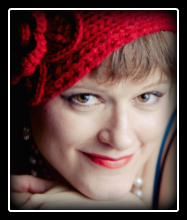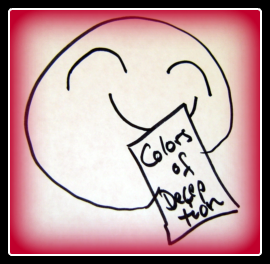The Grooming Habits of Agents
Eventually, during a break between lectures, there was a little circle of conversation at the hotel coffee shop. I don't recall how it happened, but something I said about my in-progress novel led to this editor's turning to me and asking, "So, Courtney, what is your book about?"
Or: A Brief History of My Journey to Indie Authordom

Once upon a two-years-ago, I met a real live acquisitions editor.
I’d let my mother talk me into attending an Oklahoma Writers’ Federation, Inc. Conference at a hotel in south OKC. Introvert and publishing world n00b that I was, I required a lot of convincing. The carrot that got me was Mama’s offer to pay for the whole thing. So, off I went to the writers’ conference.
After I got over myself, I had fun. Some neat people talked to me, so I tagged along with them all three days of the conference. One of them had published a few novels with a Christian publishing company, and he introduced me to his acquisitions editor.
My face was all polite smiles and wittiness. Inside, I was thinking,
“Hmm. Acquisitions editor? Foot in door? Is this it?!?”
Eventually, during a break between lectures, there was a little circle of conversation at the hotel coffee shop. I don’t recall how it happened, but something I said about my in-progress novel led to this editor’s turning to me and asking, “So, Courtney, what is your book about?”
Inside, I said, “Um.”
Back Story
Before the conference, I’d signed up to pitch my epic high fantasy novel Triad to one of the agents who’d be at the conference. Now, I had with me a carefully crafted cover letter and the painstakingly polished first three chapters of said high fantasy novel.
I had not come to this conference prepared to talk to anyone about my Christian fantasy novel, Colors of Deception, which was then in first draft stage.
Fast-Forward
So, when Acquisitions Editor Attached To Christian Publisher asked me what my in-progress novel was about, I had about half a second to come up with a pitch.
Inside, I thought, “Um.”
And then, I thought, “This IS it!!!“
Outside, I said, “My novel’s about a group of Christian college students who are being stalked by demons.”
To which Editor Attached To Christian Publisher replied, “I’d like to see that.” And she gave me her business card.
Outside, I said, “Great! I can have the first three chapters ready for you in a few weeks.”
Inside, I said,
What Happened Next
Not long after that conference — and with manic re-writing in-between — I sent Benevolent Acquisitions Editor an email, asking in what form she’d like the first three chapters. She replied with instructions to mail her a hard copy.
I did that.
I waited two months.
Then, I received her email thanking me for my submission and stating that my story was not what her publisher was looking for at this time.
Turning the Beat Around
I felt crushed. Beaten. I didn’t understand. Why would she show such interest in my story, if it wasn’t the kind of story her publisher was interested in? Why did she get my hopes up like that? Shouldn’t she know better than to treat a fragile, sensitive writer’s heart this way?!
Of course, with hindsight and a bit more education about the publishing world, I now understand it was nothing personal. Either my writing style wasn’t what she was looking for, or my story really wasn’t the kind of story her company was interested in, after all.
Of course, the notion that my writing was, at that point, simply not good enough is completely preposterous.
*ahem*
Anyway, by now it was fall of ’09, so I made an early resolution: 2010 would be The Year I Found An Agent.
A flurry of agent-y research ensued. There was intense poring-over of submission guidelines. There was much flipping through of novels to see which authors credited their agents. By February 2010, I’d compiled a database of 35 agents, their preferences, their guidelines, their faves, their published authors, their grooming habits, and their agencies. All I needed was to re-visit my query letter, perfect it, and start sending it out.
If You Need Something Done Right…
Then, in March 2010, my friend Aaron approached me about founding a non-profit organization to support the arts. How he talked me into it and how The Consortium came to be is another story and shall be told another time…
…but the end of the matter is that instead of getting an agent, I got an indie publisher. I got a published novel. Colors of Deception, that story about Christian college students stalked by demons, is in the hands of readers who, by all reports, are enjoying the heck out of it.
Maybe I coulda been traditionally published. Instead, I’m indie published. And I wouldn’t change a thing.
________________________
My most darlingest inklings! Are you agent-hunting? What’s your process?
Are you querying? What’s your greatest query letter challenge?
How do you deal with rejection letters from editors or agents?
If you’ve gone indie or self-pub — what was the legacy-pub straw that broke your writing camel’s back?
Let’s talk. : )



I know one now very well-known Christian author who started out self-publishing. Having those stories under your belt, so to speak, can be a powerful way to show publishing houses that you do have the determination and discipline to crank out the stories. After all, one hit wonders are nice, but authors who can build up their own brand name are even better!
So yeah, I think that agent will someday tell her grandkids, “I could have signed THE Courtney Cantrell. That is my one regret in life.”
Patricia! Tee hee, even with my writer’s imagination, I can hardly imagine someone saying that about *me* someday. ‘Twould be lovely, though! And I think you’re spot on about self-publishing and building one’s own brand. Even if I signed with a traditional publisher, I’d probably still have to do nearly as much self-marketing as I do now, simply because publishing houses don’t have the funds to promote authors the way they used to.
At least, that’s the buzz I hear. It makes logical sense, considering today’s economy. And I recently read an article (wish I could remember where) in which traditionally published authors gave advice to self-pubbed-turned-legacy-pubbed Amanda Hocking. Most of those authors said that she’ll still have to do as much marketing as she did when she was on her own.
Thanks for the thoughts, lovey! : )
I’m thinking of doing the self-publishing route. One reason is because even if the traditional publishing company accepts any of my future manuscripts, there’s no guarantee that I’d make even one mortgage payment from royalties from an entire year of sales of my book. There’s no certainty that they would make ebooks available at a reason price and give me a good enough royalty of the sales of them, either. I concluded this from reading from author and agent blogs for the past 5 years. I watched one author’s negative stance against self-publishing change into a successful venture into it (through self-publishing his backlist of rejected and out-of-print works as ebooks.) Self-publishing through the ebook market is a hit and miss deal like any kind of publishing, but the ebook selling sites like smashwords and amazon give a more reasonable and profitable percentage of royalities from the sales of the work than traditional publishers. It also gives the authors more control over their own work, how it’s formatted, and better rewards for their best effort.
Another reason is because of what I have learned about new ways of current audience building. Three years ago, I clicked on an online ad for the first time that advertised an online comic. I usually don’t click on ads because of the possibility of viruses and the like. I randomly took a chance on this particular ad system to find a networked treasure trove of fiction author websites to read from. There are a lot of authors who present their stories online for free either permanently or temporarily. They subsist on paypal donations to keep writing seemingly unending series of stories and novels, run donation contests to do the same, the ad system they use, and/or may go ahead and sell self-published books and ebooks when the audience grows larger. I’ve been fascinated by learning how these new authors work and survive doing this. Recent visits to established, traditionally published author websites show me that they also did something similar in that they provided a reasonably sized free sample of their books to advertise them.
The self-publishing world has changed so much, and it appears to be getting better and better for the authors. I don’t know that much about indie publishing, though. From what I’ve read on The Consortium’s site and what you’ve said about it, it looks much closer to self-publishing than traditional publishing. You appear to have much more control over your books than you would in traditional publishing.
Anna, you’ve hit the publishing nail on its proverbial head. All of my research — consisting mostly of reading blogs by traditional-pubbed-turned-self-pubbed authors — has brought me to the same conclusions. And my own experiences are bolstering those conclusions: I am now earning royalties from my first novel, which was released two months ago. If I were with a traditional publisher, it might be another 16 months before I saw my first check.
The Consortium’s publishing process is definitely closer to self- than traditional publishing. Consortium Books is an indie publisher, so there are at least 5 people in four different departments involved in the release of each novel. But, unlike a traditional publisher, Consortium Books doesn’t consider these people “gatekeepers.” The author remains involved and has a say in every step of the process and can challenge and veto many decisions. The Consortium wants to give its authors a voice — not cut their tongues out! ; )
Thanks for stopping by to comment, Anna. I hope you keep working on your story (stories?) and find a good home for them — whether that’s in self- or indie-publishing!